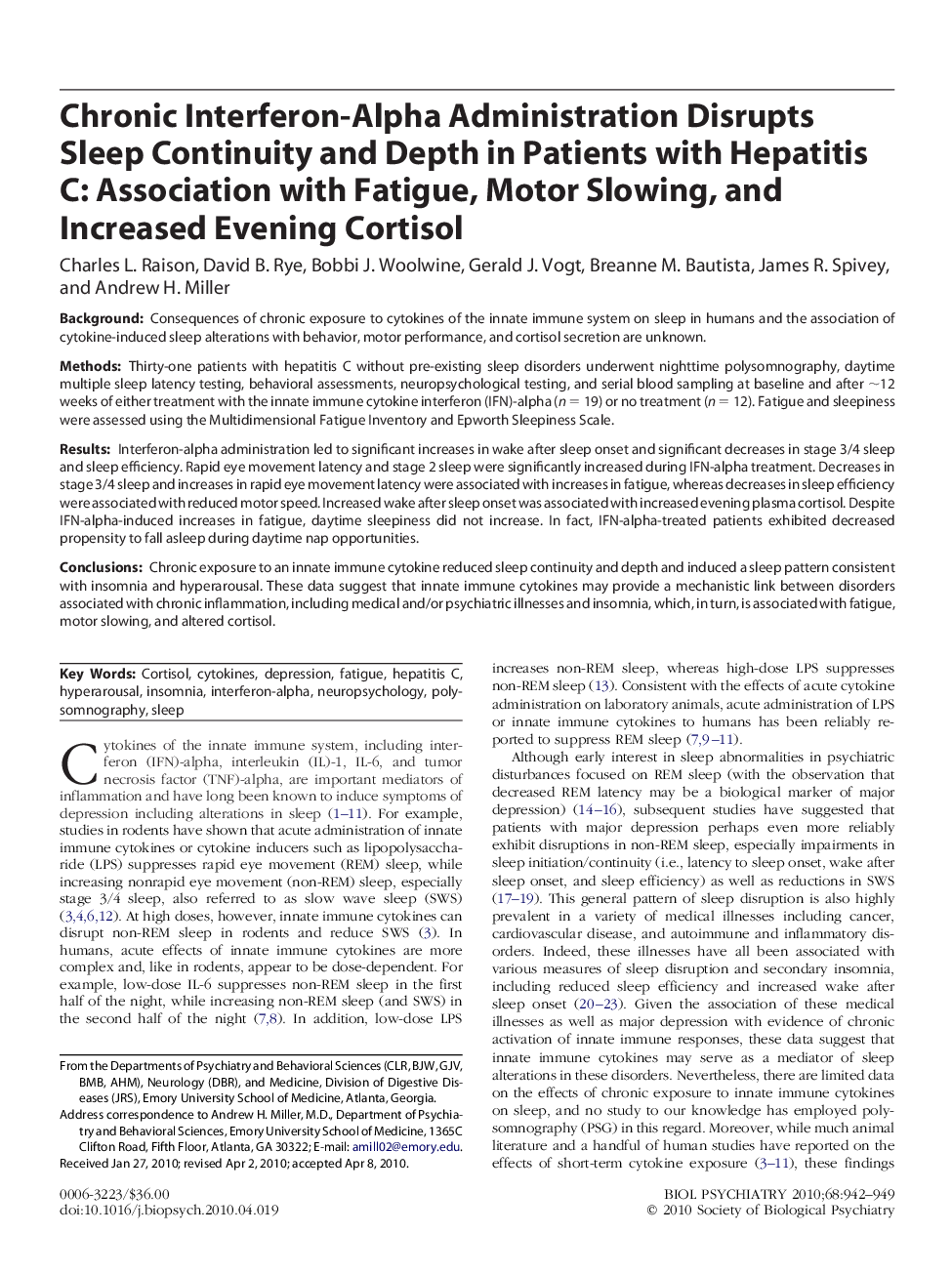| کد مقاله | کد نشریه | سال انتشار | مقاله انگلیسی | نسخه تمام متن |
|---|---|---|---|---|
| 4178509 | 1276498 | 2010 | 8 صفحه PDF | دانلود رایگان |

BackgroundConsequences of chronic exposure to cytokines of the innate immune system on sleep in humans and the association of cytokine-induced sleep alterations with behavior, motor performance, and cortisol secretion are unknown.MethodsThirty-one patients with hepatitis C without pre-existing sleep disorders underwent nighttime polysomnography, daytime multiple sleep latency testing, behavioral assessments, neuropsychological testing, and serial blood sampling at baseline and after ∼12 weeks of either treatment with the innate immune cytokine interferon (IFN)-alpha (n = 19) or no treatment (n = 12). Fatigue and sleepiness were assessed using the Multidimensional Fatigue Inventory and Epworth Sleepiness Scale.ResultsInterferon-alpha administration led to significant increases in wake after sleep onset and significant decreases in stage 3/4 sleep and sleep efficiency. Rapid eye movement latency and stage 2 sleep were significantly increased during IFN-alpha treatment. Decreases in stage 3/4 sleep and increases in rapid eye movement latency were associated with increases in fatigue, whereas decreases in sleep efficiency were associated with reduced motor speed. Increased wake after sleep onset was associated with increased evening plasma cortisol. Despite IFN-alpha-induced increases in fatigue, daytime sleepiness did not increase. In fact, IFN-alpha-treated patients exhibited decreased propensity to fall asleep during daytime nap opportunities.ConclusionsChronic exposure to an innate immune cytokine reduced sleep continuity and depth and induced a sleep pattern consistent with insomnia and hyperarousal. These data suggest that innate immune cytokines may provide a mechanistic link between disorders associated with chronic inflammation, including medical and/or psychiatric illnesses and insomnia, which, in turn, is associated with fatigue, motor slowing, and altered cortisol.
Journal: Biological Psychiatry - Volume 68, Issue 10, 15 November 2010, Pages 942–949